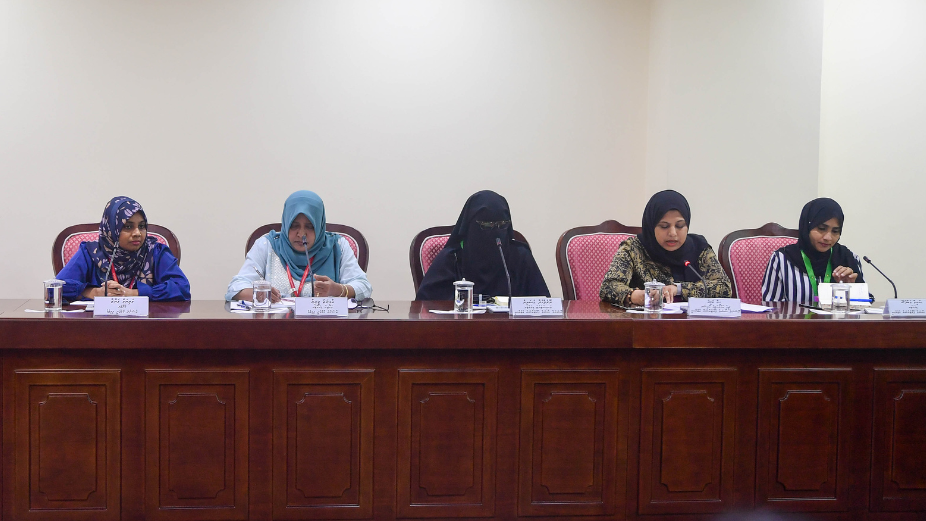
The National Social Protection Agency (NSPA) is set to implement significant reforms to the Aasandha health insurance scheme, a move that is widely seen as a critical step in addressing the financial sustainability of the country’s healthcare system. Announced by NSPA’s CEO, Heena Waleed, the reforms will take effect in October and are aimed at curbing the long-standing issue of double-charging for insurance and ensuring that the Aasandha scheme primarily benefits those most in need.
Under the new policy, Aasandha will only cover healthcare costs after deducting payments from other enrolled insurance schemes. This change is designed to streamline the insurance process, reduce redundancy, and ultimately alleviate the financial burden on the state. The Aasandha scheme, introduced as a universal health insurance programme, has been a cornerstone of the Maldivian welfare system. However, its current structure has led to mounting costs that have become increasingly unsustainable.
According to recent statistics from the Ministry of Finance, over MVR 918 million has already been spent on Aasandha between January and June this year, nearly half of the MVR 1.9 billion allocated in the annual budget. This alarming expenditure highlights the urgent need for comprehensive reform to prevent the system from becoming an untenable financial drain.
A Step in the Right Direction
The reforms proposed by NSPA are a positive move towards making the Aasandha scheme more efficient and focused. By ensuring that other insurance schemes are utilised before Aasandha, the government can better manage its resources and prevent the misuse of funds. This approach not only helps in cutting down costs but also ensures that Aasandha’s resources are directed towards those who are most in need of financial support for healthcare.
Additionally, the introduction of a social registry, as part of NSPA’s broader strategy, is a promising development. This registry will allow the agency to gather comprehensive household information, enabling it to better assess the living standards of citizens and target welfare programmes more effectively. With accurate data, NSPA can ensure that aid reaches those who genuinely require it, thereby enhancing the overall impact of social protection programmes in the Maldives.
Challenges and Future Reforms
While the proposed changes are a crucial first step, the reform of Aasandha must be part of a broader, more comprehensive strategy. The current healthcare funding model in the Maldives, heavily reliant on government expenditure, is not sustainable in the long term. Several additional measures could be considered to ensure the future viability of the Aasandha scheme.
1. Cost Control Measures: The government’s plan to implement cost-cutting measures is essential. These could include stricter guidelines on the usage of Aasandha services, the elimination of unnecessary treatments, and more rigorous monitoring of healthcare providers to prevent fraudulent claims.
2. Bulk Procurement and Partnerships: The agreement signed with the UNDP to facilitate the bulk procurement of medicines is an excellent initiative. Expanding such partnerships could help reduce costs further, ensuring that high-quality medicines and treatments remain accessible to the public at a lower cost.
3. Public-Private Partnerships: Encouraging more robust collaboration between the public and private sectors could also be beneficial. By involving private insurance providers and healthcare institutions, the government could reduce its financial burden while maintaining high standards of care.
4. Health Promotion and Preventive Care: A more significant emphasis on preventive care could help reduce the overall demand for healthcare services. By investing in public health campaigns, early detection programmes, and wellness initiatives, the government could lower the incidence of chronic diseases that are costly to treat in the long term.
5. Sustainable Funding Models: Exploring alternative funding models, such as introducing a contributory component to the Aasandha scheme, where higher-income individuals contribute to their healthcare costs, could help distribute the financial burden more equitably.
Future of Aasandha
The upcoming reforms to the Aasandha scheme represent a vital step towards a more sustainable healthcare system in the Maldives. However, the road to comprehensive reform is long and will require continued commitment from both the government and the public. By addressing the financial inefficiencies and focusing on targeted, need-based assistance, the Maldives can create a more resilient healthcare system that serves its citizens effectively for years to come.
As the government moves forward with these reforms, it is crucial that they are implemented transparently and with careful consideration of their long-term impact. The Aasandha scheme is a lifeline for many Maldivians, and ensuring its sustainability is not just an economic imperative but a moral one as well.











